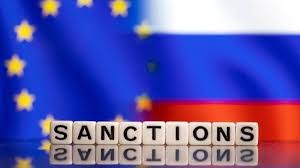OFAC Settles with Individual for $45,179 for Violations of the Global Magnitsky Act

OFAC means what it says — in more ways than one. In a precedent setting case, OFAC brought its first enforcement action against an individual for violating the Global Magnitsky Sanctions Regulations.
In 2017, OFAC implemented regulatory sanctions derived from the Global Magnitsky Act and its associated Executive Order. The 2017 Executive Order 13818 declared a national emergency with respect to serious human rights abuses and corruption globally, identifying these issues as threats to the national security, foreign policy, and economy of the United States. The E.O. implements the Global Magnitsky Act, which is a statutory authority targeting human rights abusers and corrupt actors globally. The Global Magnitsky Act is a separate legal authority from the Magnitsky Act, which targets persons for certain actions related to the case of Russian lawyer Sergei Magnitsky, who died in 2009 after being arrested and tortured in custody by officers of the Ministry of the Interior of the Russian Federation.
OFAC prosecuted a U.S. person (“U.S. Person-1”) for six violations of the Global Magnitsky Sanctions Regulations and settled for $45,179. Between January 2021 and June 2021, U.S. Person-1 executed six payments totaling $45,179 on behalf of a blocked individual with knowledge that the individual was sanctioned. Three of the six payments were designed to serve as indirect compensation to the blocked individual; the remaining three facilitated the blocked individual’s business operations in the United Arab Emirates (UAE).
The settlement amount reflects OFAC’s determination that the apparent violations were not self-disclosed and that three of the apparent violations were egregious. The settlement amount also reflects U.S. Person-1’s extensive cooperation with OFAC’s investigation.

Beginning in 2006, a U.S. company in the equine industry retained U.S. Person-1 to provide professional services, including by managing its legal, financial, and administrative affairs. U.S. Person-1 served as the secretary and treasurer of the company and worked closely with its chief executive officer, who was the only other company employee.
In December 2020, OFAC added the chief executive officer (henceforth the “SDN”) to the SDN List pursuant to Executive Order 13818. U.S. Person-1 and the SDN learned of the SDN’s designation shortly after it occurred. However, U.S. Person-1 did not consider the prohibitions that the SDN’s designation imposed with respect to U.S. Person-1’s own conduct. U.S. Person-1 did not seek or obtain information or guidance about the legal implications of the SDN’s designation for themselves or the company, nor did U.S. Person-1 seek or obtain guidance or authorization from OFAC to continue dealing with the SDN.
As a result, business operations at the company continued without interruption after the SDN’s designation and U.S. Person-1 continued to fulfill their usual duties, which included executing payments on behalf of the SDN. Between January 26, 2021, and June 1, 2021, U.S. Person-1 executed—at the SDN’s direction—six payments with a total value of $45,179. U.S. Person-1 made most of these payments directly from the company’s bank accounts. U.S. Person-1 made the
remainder of the payments through their U.S.-based professional services firm in order to earn credit card points.
The six payments fell into two categories: (i) three payments valued at $25,359 were indirect compensation to the SDN for the SDN’s duties as CEO of the company; and (ii) three payments valued at $19,820 that facilitated the operations of an affiliated entity managed by the SDN in the UAE.
U.S. Person-1 cooperated extensively with OFAC’s investigation, including by voluntarily producing records and quickly responding to all of OFAC’s requests for information, which significantly shortened the time required to complete the investigation; and
According to OFAC, the case highlights the risks that arise when gatekeepers like U.S. Person-1—professional service providers such as investment advisors, attorneys, and accountants—fail to exercise reasonable care in complying with OFAC’s sanctions. Gatekeepers serve crucial financial and legal functions that place them at heightened risk of knowingly or unwittingly furnishing access by blocked persons or other illicit actors to the licit financial system.

Gatekeepers with actual knowledge or reason to know that clients or others with whom they deal have been the subject of an OFAC sanctions designation should rapidly take all necessary steps to understand the implications for their conduct and ensure compliance with applicable prohibitions.
This case also highlights the risks involved in dealing with a blocked person acting through or on behalf of a non-blocked entity. Although U.S. Person-1 dealt directly with the SDN throughout the conduct at issue in this matter, the SDN was acting in their capacity as CEO of the company, at which U.S.-Person-1 was the only other employee. OFAC has repeatedly emphasized, including through general and sanctions program-specific public guidance, the risks that arise in such circumstances.















